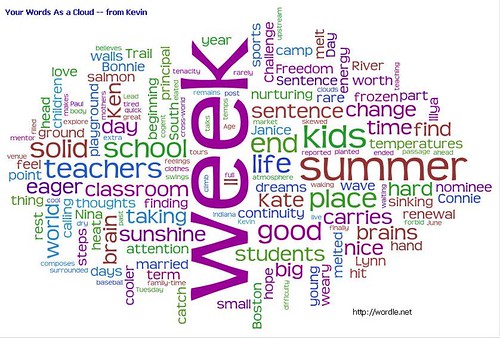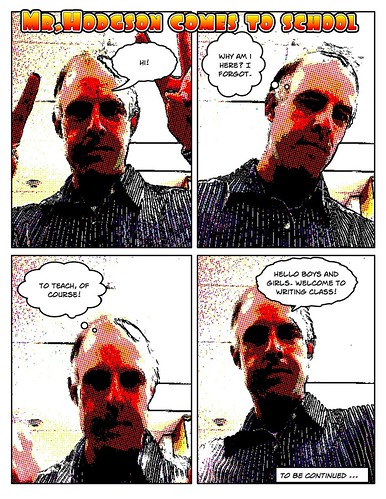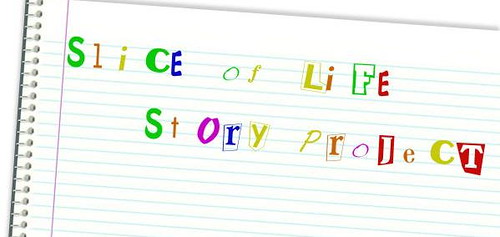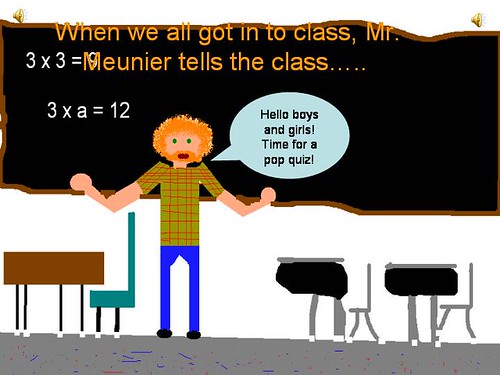This is part of a project at Two Writing Teachers
We used to take the stage late at night, armed with a few guitars — an acoustic (me), an electric (JD) and a bass (Bert). A drummer would come in the future. Hooligans, a hangout for two different universities, was one of those dark-lit establishments that has the rank smell of beer all over. Tables were shoved so close to each other that patrons were just as likely to be engaged in a conversation at their own table as the ones next to them.
One night a week, the place opened up the stage for Open Mic Night and our ragtag trio (we named ourselves Behind Bars first and then later, Rough Draft) would join the assortment of other pseudo-musicians in playing to an audience that would waver between interested and disinterested, and you had to really engage them or you’d lose them. We hardly knew what we were doing, except we knew we had original songs that we wanted to play. If there was an open stage, we wanted to use it. We were as rough as our name suggested, but confident that music was important to us.
This was during the heart of the Reagan years and all of us were feeling very disenfranchised by the political scene and the willingness of our administration to support covert wars in order to advance its aim of ending Communism once and for all. Central America was often a battleground for these proxy wars between the US and Russia, but there were many other hot spots around the world and Iran-Contra wasn’t far off. We spent one of our summer fixed to the TV screen, watching Oliver North testify about the inner workings of Casey’s CIA operations that pushed legalities aside in order to further political aims. Things were happening in the world that made us angry, yet we had no way to express that anger or vent our frustration.
As a result, I was writing very political songs at the time for the band, trying to reach some heart of understanding of this world we were soon set to move into. I alternated between disguising the venom of my thoughts with rhythm and melody and being forthright with my aims. Music, I was sure, could change people’s hearts and if not, then at least it was a legitimate way for me to protest the unfolding world in a language that I could understand: music. My bandmates were right with me on this.
On this particular night, we launched into a song called “It’s Another War,” which is about sending kids off to fight a war while the leaders stay home behind desks. I was writing from the perspective of the lessons of Vietnam being ignored while covert operations were taking place in Central and South America.
The song begins: “So we’re off in another, though we didn’t start it, we’ve seen it before,” and builds into a condemnation of Reagan and his staff, although never named. (Later, Bert made a video of the song that I have on VHS somewhere — need to dig it up).
Midway through, at the chorus, suddenly I hear a voice that is swearing at me to get off the stage and leave America if I don’t like it so much. I kept playing and singing, eyeing this person and wondering what might happen in this bar tonight. That’s when I noticed one of my roommates — the one with completely different political views than me, the conservative man all the way through — jump to his feet, and move towards the table where the heckler is sitting. Even as we play, I can hear my roommate shout: “Keep quiet. They have a right to their song,” with slightly more profanity than that. The heckler glared back and then backed down. I was saved by the token Conservative in our Liberal midst, as about ironic as you can get, I suppose, and a reminder not to judge someone by their political leaning.
This all came back this week as I pulled out my acoustic guitar (the same one I used to play at Hooligans, it turns out, although now it has about 25 years of travel on it) and I wrote a new song about Bush and his presidency. I realized how strangely similar things had become and how I was still trying to sort out my political feelings through music.
So, here is the (ahem) rough draft of the new song.
Farewell to King George
We’ve been held up forever
as you take what you want
Not knowing what we needWe might be in this together
But only if the world
is crumbling at its kneesYou look so tired
And we’ve been brought down low
Your time’s expired
With the clock ticking slow
And when the history books
Give you a second look
I know you’re goneYou find forgiveness for your sins
When death is but a battle cry
waiting in the wingsThis world may never be the same
You threw the match that drew the spark
and stoked it into flamesChorus
Now that the day has come and gone
I’ll meet you out on the roof
to celebrate the dawnWe’re held captive to our fears
But this chance to end the bitterness
may wash away the tearsChorusx2
The song’s title will have to go — it’s too overt and makes me a bit uncomfortable. And the song may never move to another stage. Many don’t. But for now, it works for me as I await a change in our leadership that may make a positive difference in the world, although how to reverse the damage done by this administration is beyond me.
Peace (in all respects),
Kevin







